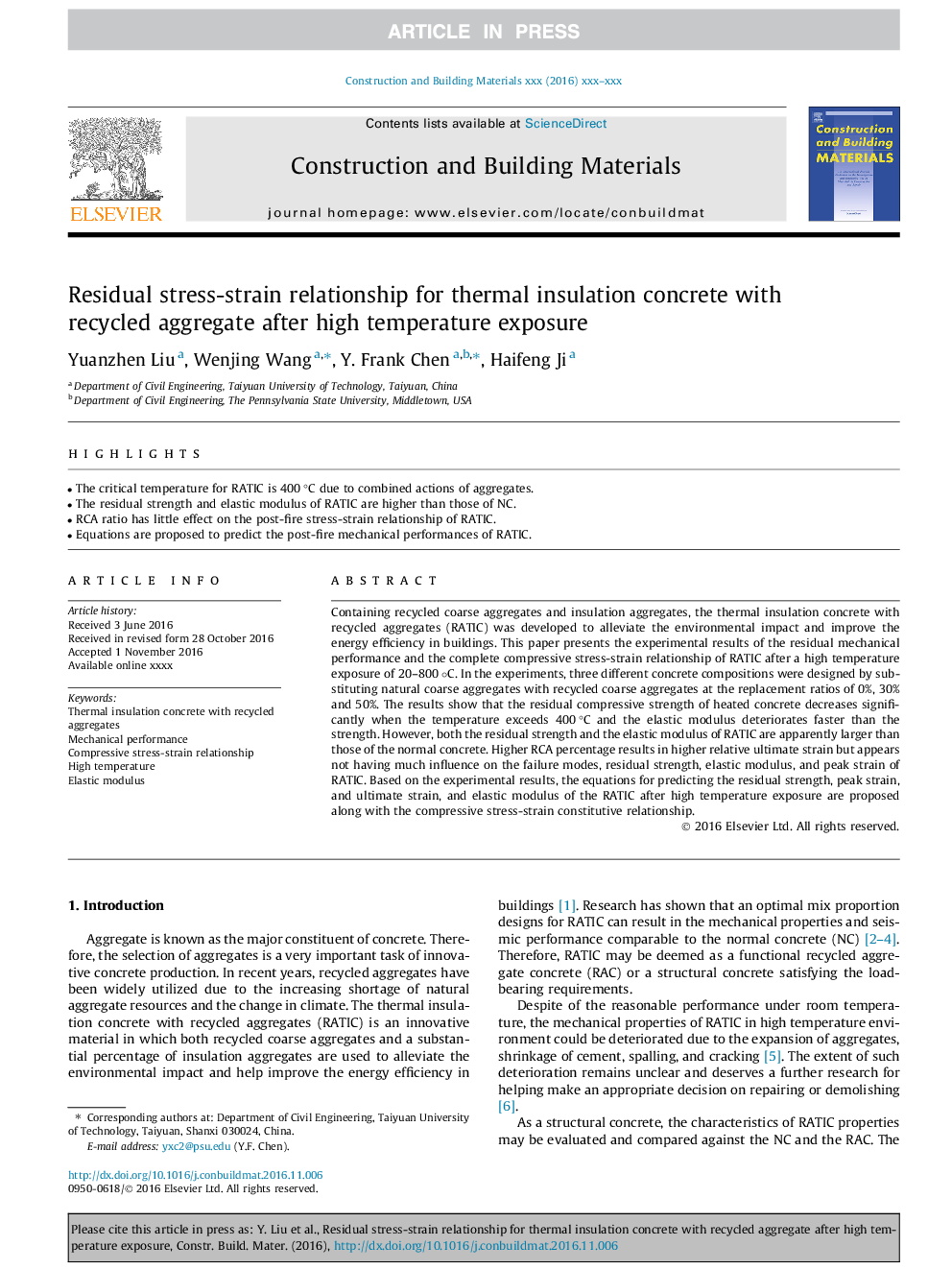| Article ID | Journal | Published Year | Pages | File Type |
|---|---|---|---|---|
| 4913890 | Construction and Building Materials | 2016 | 11 Pages |
Abstract
Containing recycled coarse aggregates and insulation aggregates, the thermal insulation concrete with recycled aggregates (RATIC) was developed to alleviate the environmental impact and improve the energy efficiency in buildings. This paper presents the experimental results of the residual mechanical performance and the complete compressive stress-strain relationship of RATIC after a high temperature exposure of 20-800 âC. In the experiments, three different concrete compositions were designed by substituting natural coarse aggregates with recycled coarse aggregates at the replacement ratios of 0%, 30% and 50%. The results show that the residual compressive strength of heated concrete decreases significantly when the temperature exceeds 400 °C and the elastic modulus deteriorates faster than the strength. However, both the residual strength and the elastic modulus of RATIC are apparently larger than those of the normal concrete. Higher RCA percentage results in higher relative ultimate strain but appears not having much influence on the failure modes, residual strength, elastic modulus, and peak strain of RATIC. Based on the experimental results, the equations for predicting the residual strength, peak strain, and ultimate strain, and elastic modulus of the RATIC after high temperature exposure are proposed along with the compressive stress-strain constitutive relationship.
Related Topics
Physical Sciences and Engineering
Engineering
Civil and Structural Engineering
Authors
Yuanzhen Liu, Wenjing Wang, Y. Frank Chen, Haifeng Ji,
